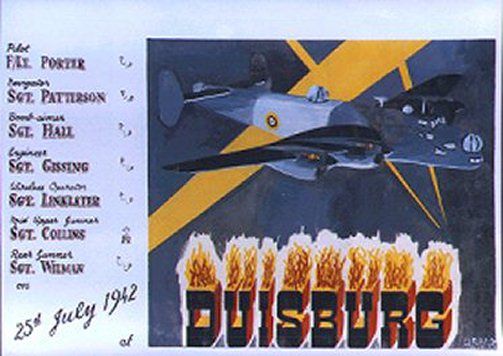 Previous Section |
 Go Back to Chapter Headings |
 Next Section |
As we marched, the roads were often barred with trees the Germans had cut
down to impede the advancing Russians, the bridges were wired and ready to be
blown up but this didn't make much difference as everything was frozen.
Detouring around the barred roads meant marching in the deep snow along the
roadsides. We met many Germans fleeing from the Russians, they had horses and
wagons, old people, younger women and children. Any women that fell into
Russians hands were raped. These people were in desperate straits but they got
no sympathy or kind thoughts from us. We also met columns of Jews in their
striped, pyjama looking uniforms, they were in desperate conditions. One column
of them had a wagon piled with guards gear and supplies and it was being pulled
by these prisoners, the guards had whips forcing them on. It was a tragic scene.
There were also columns of Russian POWs, they too were in desperate condition.
Sometimes we would march alongside them. Along the roads there were clamps for
storing sugar beets. Some had been opened and the beets removed, the Russians
would forage through them trying to find a beet. The guards would shoot them but
many of the Russians were so desperate they bargained their life for a frozen
beet.
A week or so after we left Gorlitz we were put up for the night in
a barn which had lots of straw in it. It was obviously a large farm. Mem and I
buried into the straw about two or three feet deep. Then when the men were
called out to start the days march they were two men short. They came back into
the barn and stabbed the straw piles with their bayonets but we expected this
and we were too deep to be hit. This was the first shelter with enough straw to
hide in.
We hid in the straw until evening then we came out. There were
about a dozen French POWs working on the farm. They worked as civilians. They
had signed a PAROLE whereby they agreed not to escape or cause problems for the
Germans. This would have been considered a disgraceful thing for a British or
Canadian to do and cause for punishment and court martial. The French had their
own comfortable quarters, warm and with hot showers, etc. They were getting
American Red Cross parcels and cigarettes, which made it possible for them to
trade for practically anything the German civilians had. They had lots of food
as well. They did not want to have anything to do with us. We became assertive
and demanded food, etc. As Mem spoke good German he told them I was an R.A.F.
officer and if they did not cooperate I would have them court martialled after
the war. Of course they realized that Germany was quickly being beaten, so after
some parlez-vousing amongst themselves they decided to cooperate. So we ate,
showered, washed our lice ridden clothes and bodies and had a nice warm sleep.
Rather than push our luck farther we got a loaf of bread from them and left the
next morning with another column with had come through.
 Previous Section |
 Go Back to Chapter Headings |
 Next Section |